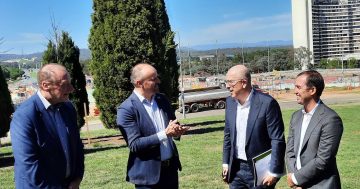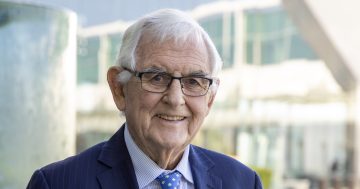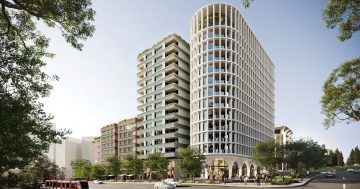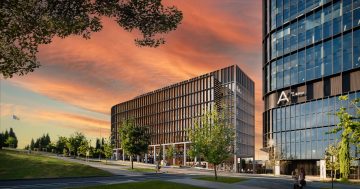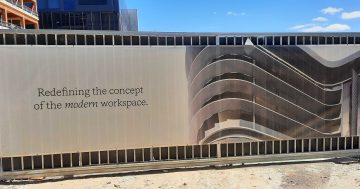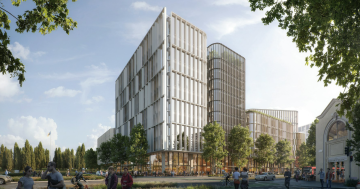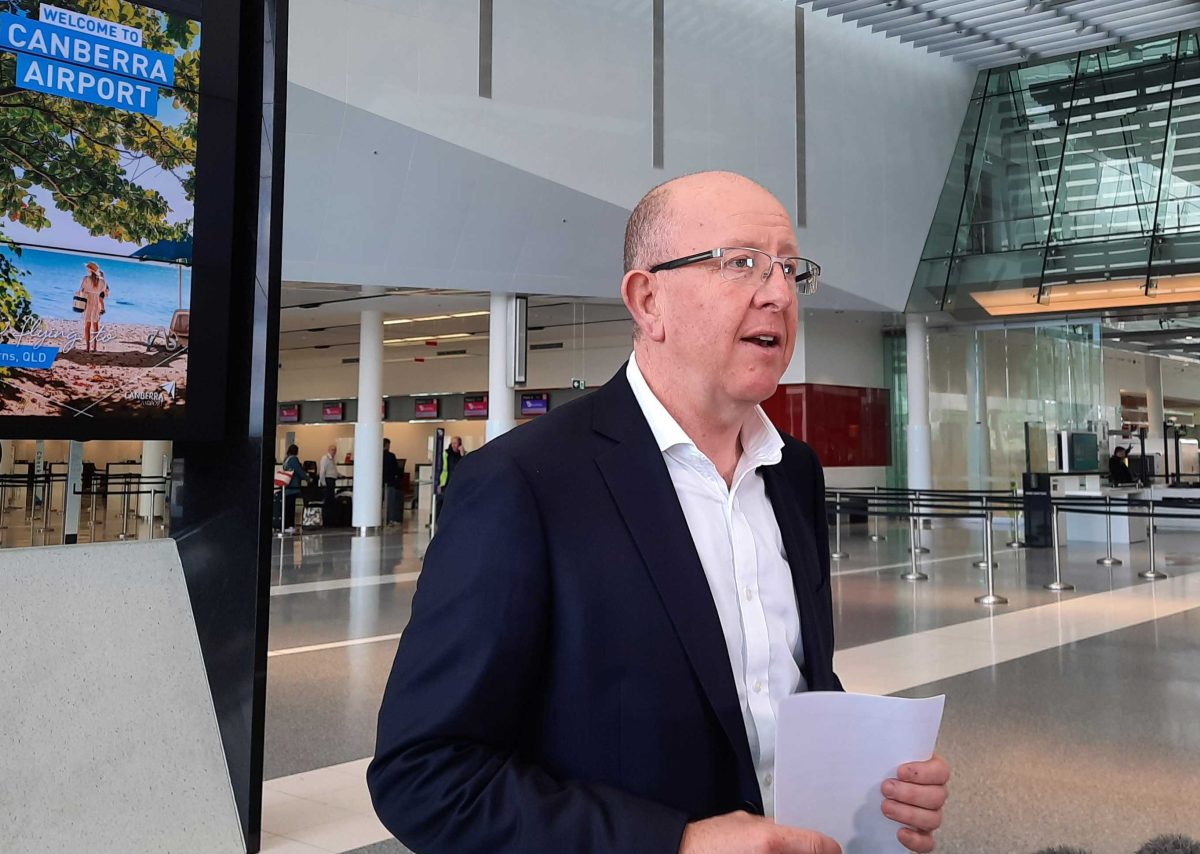
Canberra Airport and Capital Property Group CEO Stephen Byron says the national capital’s workers need to return to the office. Photo: Ian Bushnell.
Canberra Airport and Capital Property Group boss Stephen Byron has launched a blistering attack on working from home policies for draining the life out of offices and the CBD.
Mr Byron, whose company operates the Brindabella Office Park at the Airport and is building new offices in the CBD, also blasted Canberra city for its lack of parking and the road system for its gauntlet of traffic lights and 40km/h speed limits, saying workers needed to be able to get to the workplace easily.
He made the comment at an ACT Property Council breakfast launching the latest Office Report. The question of working from home and how to get people back to their offices, particularly in the CBD where retail vacancies are the highest, dominated a panel discussion.
Mr Byron said working from home was a legacy of COVID and amounted to isolationism.
“It’s not being part of the team, it’s not being part of the culture, it’s not providing an environment for learning, for the young, for leadership, for mentoring,” he said.
Mr Byron said remote public service appointments undermined the very notion of a national capital.
“Canberra particularly has a lot at risk with this work from home, because if you can have a job in Health and do it from Noosa or Brisbane or indeed Darwin, then why have a national capital,” he said.
“We’re tribal as people, we work better in teams, we work better collaboratively, we understand what we’re trying to achieve.
“The truth is, if you want to really work from home, every single person’s job is at risk of being outsourced overseas.”
Mr Byron said where was the incentive for teachers to stay in the classroom if there was a job with Education working at home.
“We are distorting our workplace and our professions with this work from home policy,” he said.
He said there was a lack of leadership on the issue from governments and managers, and the mandating of working from home in some departments had to stop.
“Managers need to manage people and show leadership and mentoring, and they need to say, I can look after my team as a team, not as an individual, and I’m probably going to employ people who live in the same city.”
He said the CBD needed to function better and have more people living there if it was to attract workers back and achieve that desired vibrancy.
Barton, where many departments and agencies were moving to, had been transformed in the past 20 years and left the CBD behind.
Mr Byron said it wasn’t just about the buildings but the spaces between them and the CBD needed to do better on precinct development and landscaping, as well as making it work from a transport point of view.
“It will be nice to see all the roads open and light rail operational, and I think getting those roads open is so fundamental because we are choking the city at the moment,” he said.
CBRE’s head of ESG (environmental, social, and governance) Su-Fern Tan said the industry needed to redefine the office and offer the right amenities, such as free fitness facilities and end of trip facilities, to lure people away from home.
Foundation for Social Health CEO Melanie Wilde said the evidence showed that working from home was bad for mental health, and that loneliness was rife in Canberra.
“It doesn’t mean everyone has to be ordered back Monday to Friday 9 to 5 but … we need to think about flexibility in terms of the team conversation and the interaction, not just individual preferences so that you have people in and out randomly.”
Ms Wilde said workplaces needed to create communities but Australia was way behind other countries that had been making these investments for a decade.
“We’re not going to solve the problem by just moving people from the desk in their homes to a desk in the building,” she said.
Ms Wilde said it was important for public policy makers to work in teams and not be isolated from the community.
“They’re dealing with really complex public policy questions that are intersectional, that are multi-disciplinary, that require innovation and creativity, and you only produce that type of thinking when you get people together, and also when you have your public policy makers actually interacting with the community,” she said.
Property Council of Australia ACT & Capital Region Executive Director Ashlee Berry said it was critical for the property industry to continue to work collaboratively with the ACT Government and local businesses to foster economic activity and innovation in the CBD.
“The supply side of the equation is well addressed, with high-quality developments in the pipeline. Now we need to focus on making sure Canberra remains a place where people want to work, live and do business,” she said.
“This means investing in the CBD’s vibrancy — supporting events, cultural activities and infrastructure that attract workers and enhances the overall appeal of the city centre.”
The Canberra office market maintained its position as one of the tightest capital city markets, with a vacancy rate of 9.2 per cent, down from 9.5 per cent over the six months to January 2025.













